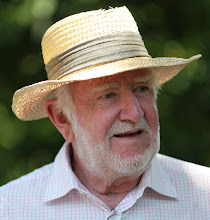As an engineer, I had to learn that Murphy’s Law really is a Law, not some wishy-washy rule. For the uninitiated, the Law says that if something can go wrong, it will. Note, “it will”, not “it may”. There is an awful finality about the Law. It is inescapable.
So when we engineers design something, we have to resign ourselves to the fact that it will almost certainly fail. Its failure will be unexpected – a ‘black swan’ event – but fail it eventually will.
Fortunately we learn from our mistakes. What we design gets better and better all the time. My first car was a Morris Minor. It had a hole in the centre of the front bumper. When the starter motor failed, you took out a crank handle, put it through the hole, and turned the engine by hand until it started.
When the starter motor failed, not if. In the 1950’s the starter was expected to fail. Over the years, starters have become more and more reliable. No longer do cars come with crank handles.
This simple example is repeated over and over. I once travelled fast in a 1926 Bentley. Its chassis was positively alive, and the slightest bump would send the car off course. The Bentley had been the finest machine of its day. It won at Le Mans several years in a row. But today its road-holding would make it impossible to sell. The designers of cars have learned from their mistakes.
The result of this continual improvement is that unexpected failures become rarer and rarer. In the motor industry, there are occasional ‘recalls’ when an error appears in one of the many systems that make up the modern vehicle. They are rare, so rare that they are newsworthy.
Much of modern life benefits from the continual improvements we engineers have made. However, we can never forget that Murphy is peering over our shoulders. The latest example was Fukushima. The designers knew that if cooling was lost, it would be a disaster, so they designed backup pumps that would keep cooling water flowing. Then they recognised that the power to the backup might fail, so they installed generators to supply power if the normal power supply failed. If the generators should fail, there were batteries to keep things going until the generators could be restarted.
When one of the largest earthquakes ever recorded struck, the reactors shut down as expected. The power lines failed, so the generators kicked in. For an hour, all was well. Then Murphy arrived, in the form of a wave that was twice as high as anyone had conceived. The generators were flooded, the batteries battled on until they had run out of energy, cooling was lost and the reactors were destroyed.
Everyone has learned from this disaster. It will not happen again. Nuclear reactors will become safer. But they will never become perfect. Perfection is impossible. At best, accidents will become more and more infrequent, and lower and lower in their impact.
But whatever we do, Nature will invent more ways to defeat our best-laid plans. Murphy is ever present. That is the Law by which we engineers are ruled.

